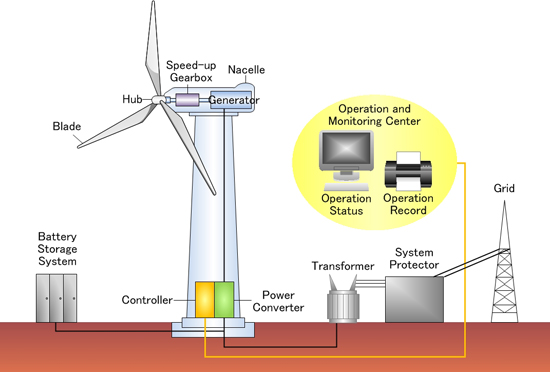 Renewable energy sources have become an important part of a balanced energy supply. Like other green energy sources, wind is a sustainable, clean, abundant source of energy that does not produce any emissions. Generally, each wind farm may install tens to hundreds of independent wind towers and cover an area of hundreds of square miles in harsh environments and only a few maintenance staff. As a result, the question of how to supervise a large number of wind turbines at the same time and how to ensure reliable and secure operation in each wind farm are the essential elements to manage the wind power plant is a major question. Advantech has been involved in the field of renewable energy formany years and is able to provide all kinds of hardware devices and dedicated software programs to assist system developers and wind power plant owners to implement a comprehensive monitoring system so as to achieve professional management and optimum performance.
Renewable energy sources have become an important part of a balanced energy supply. Like other green energy sources, wind is a sustainable, clean, abundant source of energy that does not produce any emissions. Generally, each wind farm may install tens to hundreds of independent wind towers and cover an area of hundreds of square miles in harsh environments and only a few maintenance staff. As a result, the question of how to supervise a large number of wind turbines at the same time and how to ensure reliable and secure operation in each wind farm are the essential elements to manage the wind power plant is a major question. Advantech has been involved in the field of renewable energy formany years and is able to provide all kinds of hardware devices and dedicated software programs to assist system developers and wind power plant owners to implement a comprehensive monitoring system so as to achieve professional management and optimum performance.
Read Full Article by Advantech
Golf
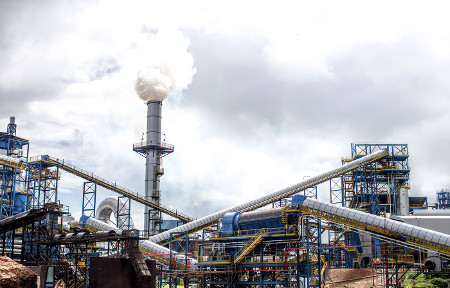 GranBio Investimentos SA is a Brazilian industrial biotech company that was born out of the vision of bringing about a green revolution through the construction of second-generation ethanol plants that will produce cheap, clean-burning biofuel from readily available biomass. Following its establishment in June 2011 by Gran Investimentos S.A., a holding company in which the Gradin family are the primary investors, the company built Bioflex 1, the first commercial second-generation ethanol plant in the Southern Hemisphere. Bioflex 1 started operation in early 2014 and is able to produce 82 million liters of biofuel per annum, making it one of the largest such facilities in the world.
GranBio Investimentos SA is a Brazilian industrial biotech company that was born out of the vision of bringing about a green revolution through the construction of second-generation ethanol plants that will produce cheap, clean-burning biofuel from readily available biomass. Following its establishment in June 2011 by Gran Investimentos S.A., a holding company in which the Gradin family are the primary investors, the company built Bioflex 1, the first commercial second-generation ethanol plant in the Southern Hemisphere. Bioflex 1 started operation in early 2014 and is able to produce 82 million liters of biofuel per annum, making it one of the largest such facilities in the world.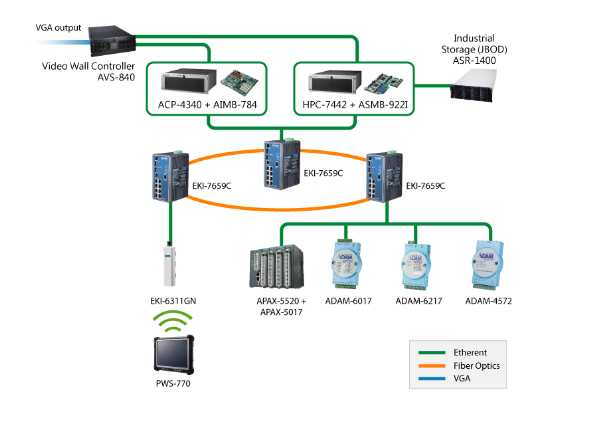 Case Study by Advantech: Manufacturing Execution Systems (MES) have become a necessary tool in providing visible and controllable management for the manufacturing industry. However, expanded product portfolios, growing product complexity and increasing globalization are propelling the need to update traditional MES so as to effectively manage evolving challenges. In terms of food processing and manufacturing, the complex process needs Information and Communications Technology (ICT) to fully monitor and control production line while maximizing the effectiveness of MES functions. Advantech not only offers a variety of hardware products to take on the important task of data collection in the production line but also provides software platform to serve as a data gateway between the front-end equipments and MES application. Through this total solution, System Integrators can design the required management systems for food processing and manufacturing factories, and food manufacturers can upgrade their existing manual work into the paperless and automated operation, thus establishing product traceability system to achieve the goal of safe manufacturing.
Case Study by Advantech: Manufacturing Execution Systems (MES) have become a necessary tool in providing visible and controllable management for the manufacturing industry. However, expanded product portfolios, growing product complexity and increasing globalization are propelling the need to update traditional MES so as to effectively manage evolving challenges. In terms of food processing and manufacturing, the complex process needs Information and Communications Technology (ICT) to fully monitor and control production line while maximizing the effectiveness of MES functions. Advantech not only offers a variety of hardware products to take on the important task of data collection in the production line but also provides software platform to serve as a data gateway between the front-end equipments and MES application. Through this total solution, System Integrators can design the required management systems for food processing and manufacturing factories, and food manufacturers can upgrade their existing manual work into the paperless and automated operation, thus establishing product traceability system to achieve the goal of safe manufacturing.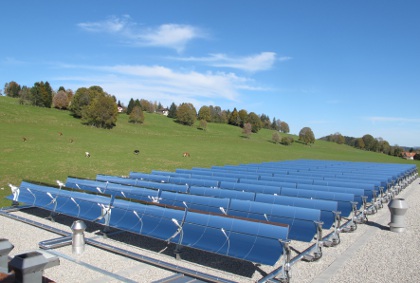 Case Study: NEP Solar is a leading developer and supplier of concentrating solar thermal collectors for industrial processes, solar cooling and cogeneration. NEP Solar’s PolyTrough collectors generate heat at up to 400° C at high efficiency and at competitive cost. Being able to be roof top mounted allows the NEP Solar solution to be integrated into otherwise unused area.
Case Study: NEP Solar is a leading developer and supplier of concentrating solar thermal collectors for industrial processes, solar cooling and cogeneration. NEP Solar’s PolyTrough collectors generate heat at up to 400° C at high efficiency and at competitive cost. Being able to be roof top mounted allows the NEP Solar solution to be integrated into otherwise unused area.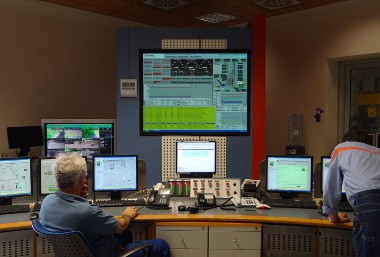 Case Study by Yokogawa: Enel S.p.A. is an Italian electric utility company, the second-largest in Europe by market capitalization. Formerly a state-owned monopoly, it is now partially privatized with Italian government control: the largest shareholder is the Italian Ministry of Economy & Finance (31.244%).
Case Study by Yokogawa: Enel S.p.A. is an Italian electric utility company, the second-largest in Europe by market capitalization. Formerly a state-owned monopoly, it is now partially privatized with Italian government control: the largest shareholder is the Italian Ministry of Economy & Finance (31.244%).